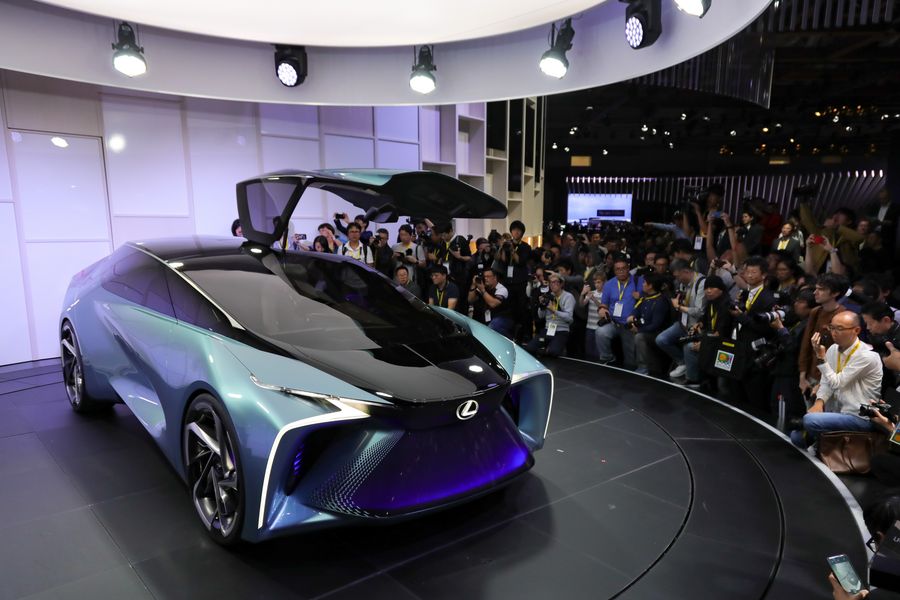
Photo taken on Oct. 23, 2019 shows a Lexus LF-30 concept car displayed during the 46th Tokyo Motor Show in Tokyo, Japan. (Xinhua/Ma Caoran)
This year's Tokyo Motor Show showcases how Japanese automakers are adjusting their strategies to cater to the new demand of smart travel.
TOKYO, Oct. 30 (Xinhua) -- The Tokyo Motor Show, a window for the latest technological trends in the field of car travel, showcases this year how Japanese automakers are adjusting their strategies to cater to the new demand of smart travel.
This year's show kicked off on Oct. 24 and will open to the public till Nov. 4.
In recent years, "CASE" has been a buzzword in the auto industry. "CASE" is made up of the initials of the keywords -- car networking, autonomous driving, sharing and service, and electrification. The development and implementation of relevant technologies will likely bring great changes to the value chain and business model of the automobile industry.
Following the launch of Toyota's first generation of networking cars equipped with data communicators in June 2018, other manufacturers are trying to catch up in the field of automobile networking.
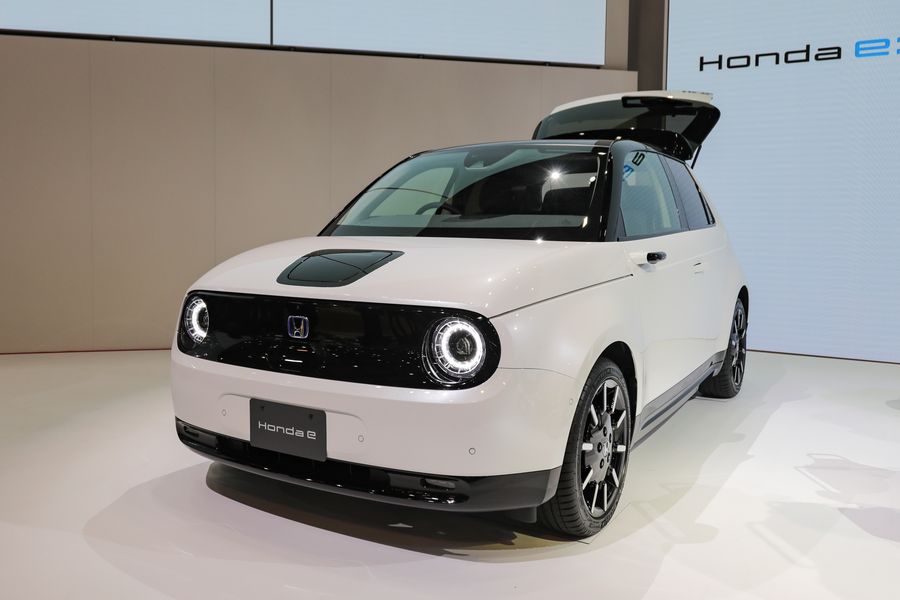
Photo taken on Oct. 23, 2019 shows a Honda e electric car displayed during the 46th Tokyo Motor Show in Tokyo, Japan. (Xinhua/Ma Caoran)
In the show this year, Honda unveiled its new FIT, which will go on sale in February 2020, with communications modules that provide Internet-connected services. In case of emergency, the new FIT can automatically communicate with the emergency assistance center, report the situation and location of the vehicle, and contact the police, emergency center, insurance company and so on.
The newly developed remote control function also allows users to remotely turn on the air conditioner, lock the car or confirm the location of the car with their smartphone. If there is a suspicious person approaching, the automatic vehicle alarm system will send a notice to the user's mobile phone and notify the security personnel.
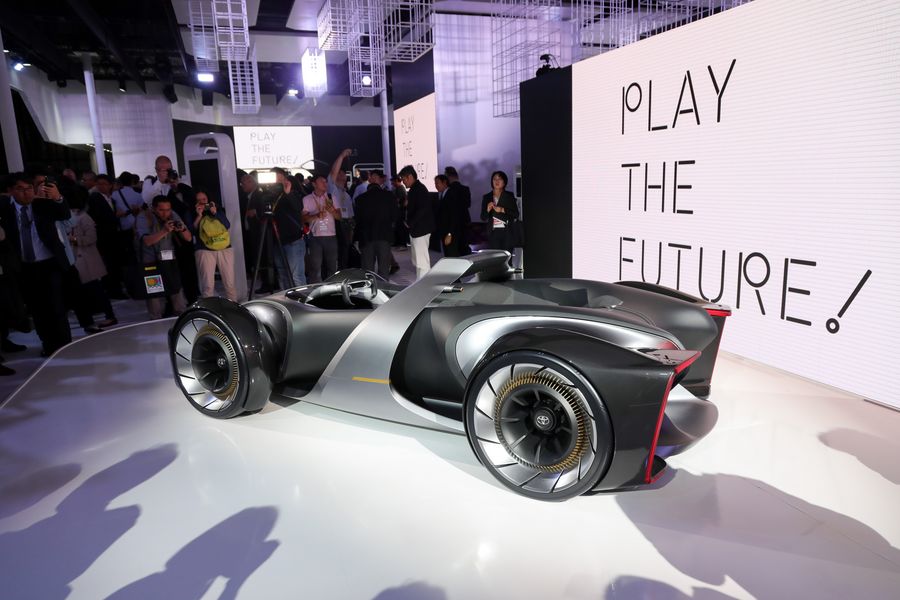
Photo taken on Oct. 23, 2019 shows a Toyota e-Racer concept car displayed during the 46th Tokyo Motor Show in Tokyo, Japan. (Xinhua/Ma Caoran)
Autonomous driving technology has developed rapidly in recent years. Most of the new models sold by Japanese car manufacturers have driving assistance functions at L1 to L2 levels. Toyota, Nissan and Honda have all established plans to realize the conditional automatic driving of L3 level around 2020 and the highly automatic driving of L4 level on expressways around 2025.
Nissan's new Skyline exhibited on the show features an autopilot system that allows the driver to take his hands off the wheel during driving on the same lane, interact with the car's navigation, and automatically control the car's speed in situations such as sharp turns. The system can also determine the distance between vehicles and notify the driver when he or she can overtake or change lanes. The driver can press a button and the vehicle will automatically complete the orders.
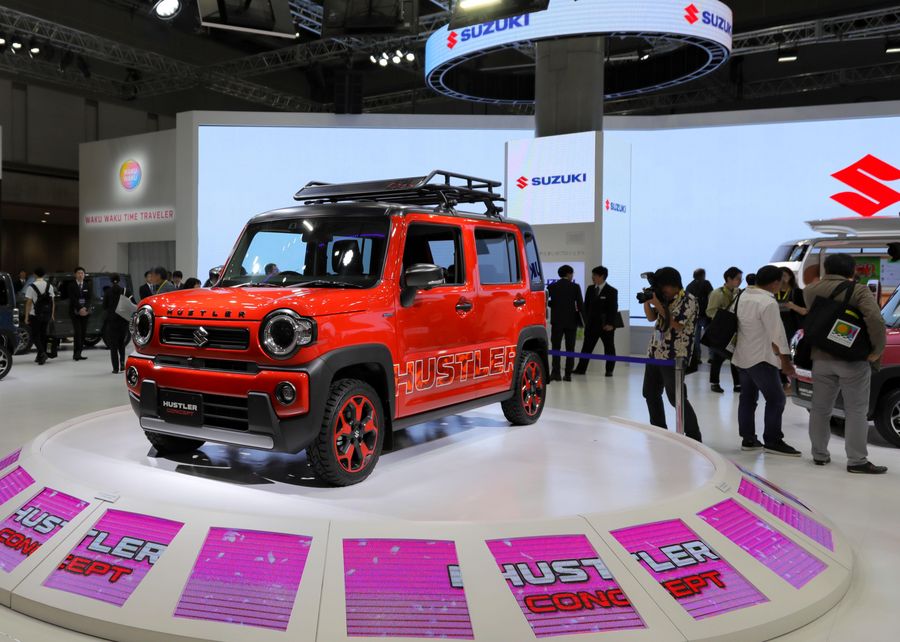
Photo taken on Oct. 23, 2019 shows the booth of Suzuki during the 46th Tokyo Motor Show in Tokyo, Japan. (Xinhua/Ma Caoran)
Suzuki's concept car HANARE and Toyota's personal mobility tool e-4me show the joy of fully autonomous driving. The steering wheel, dashboard and other control equipment can no longer be found in the interior of the car. Instead, the large screen, audio and other leisure and entertainment equipment are shown in the vehicle. Passengers simply tell the car where they want to go, and all they need to do is rest, play games, play musical instruments and enjoy the ride.
Toyota's e-palette in the exhibition is a self-driving vehicle designed to provide public transportation services. The car has a symmetrical box design with wheels set at the four top corners of the chassis to ensure more room in the car. It is about the length and width of a large car, but can accommodate about 20 people. During the 2020 Tokyo Olympic Games, more than 10 e-palette vehicles will be available in the athletes' village.
From now on, demand for cars will shift from individually-owned to sharing, with most people only needing to rent a shared car, except for those who want to have their own cars to enjoy the fun of driving, said Toyota booth staff.
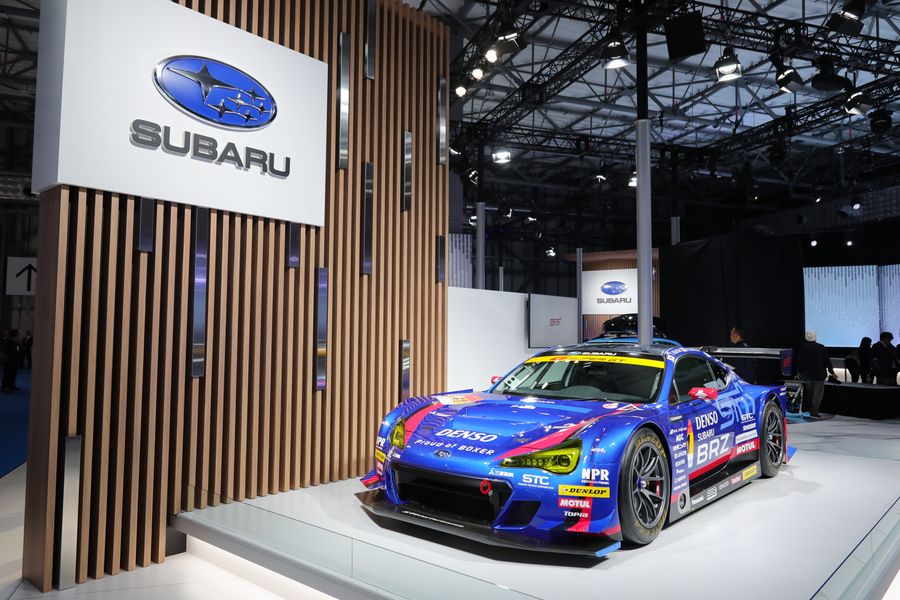
Photo taken on Oct. 23, 2019 shows the booth of Subaru during the 46th Tokyo Motor Show in Tokyo, Japan. (Xinhua/Ma Caoran)
The trend of Japanese cars with electrification was evident at the 2017 motor show in Tokyo, and manufacturers at this year's show are showing their achievements in this field.
As the originator of the electrification of Japanese cars, Nissan launched two concept cars using the company's newly developed electric vehicle platform, showcasing the direction of the future product line, new design and new technological possibility.
Toyota, best known for its hybrid cars, has continued to beef up the development of electric vehicles since unveiling its plan to build and improve a mass production system for electric cars by 2020. Toyota also showcased electric racing cars, medical diagnostic cars and other versatile electric vehicles.
However, Toyota exhibition staff said that showing so many electric vehicles does not mean transferring of their strategic focus onto electric vehicles, but to produce locally competitive products according to the needs and advantages in different countries and regions.■



